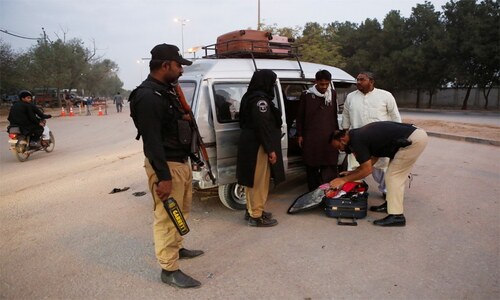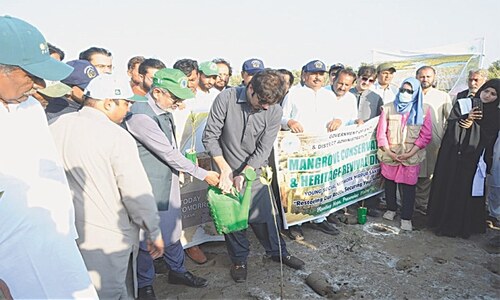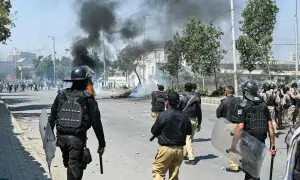HYDERABAD: Wom-en’s rights activists and female farm workers demanded on Sunday inclusion of female farm workers in social safety net coverage, implementation of Women Agriculture Workers Act, 2020, and establishment of “climate change fund” to address climate change impacts.
They were speaking at a women’s assembly for climate justice held under the aegis of Sindh Community Foundation in collaboration with Asian Venture Philanthropy Network and Women Engage for Common Future to commemorate International Rural Women’s Day under theme of “world free from hunger and poverty” at Sindhi Language Authority (SLA).
Javed Soz, head of Sindh Community Foundation, said that rural women were key agents of change and major contributors to rural economy and textile industry as they made efforts to produce food, rice, wheat and nutrition supplements.
He said that women were facing lack of decent working conditions, health services, occupational safety measures and offseason economic opportunities. Climate change was impacting health of women cotton pickers due to rising temperatures and floods, hence the problem needed immediate attention, he said.
He said that holistic climate justice approach by the government, stakeholders and private sector needed to be adapted to protect more than a million rural agriculture workers from climate impacts.
Shahnaz Sheedi of South Asia Partnership Pakistan said that rural women lacked access to productive resources that hampered their development. Pakistan ranked fifth as vulnerable country on Global Climate Risk Index 2023 while Sindh was vulnerable region impacted by climate change hence women agriculture workers were facing climate risks, she said.
Gufrana Arain of Human Rights Commission of Pakistan and rights activist Sadai Baloch called for serious efforts to provide socio-economic security to keep workers safe against climate hazards.
They said that achieving gender equality and empowering women in rural areas could be done by addressing key issues of extreme poverty, hunger, and malnutrition.
Ms Parti, a cotton picker from Matiari, said that they were facing tough working conditions, impact of climate change in the shape of sunstroke, asthma, high blood pressure and allergy caused by rising temperatures while growers were less sensitized to climate change impact. The government should commit more resources to support them in the off-season, she said.
The speakers said that the government should ensure climate change safety by strict laws related to agriculture labour. Mobile health services should be initiated for first aid support for workers in cotton-picking season for four to five months, they said.
Published in Dawn, October 16th, 2023
































